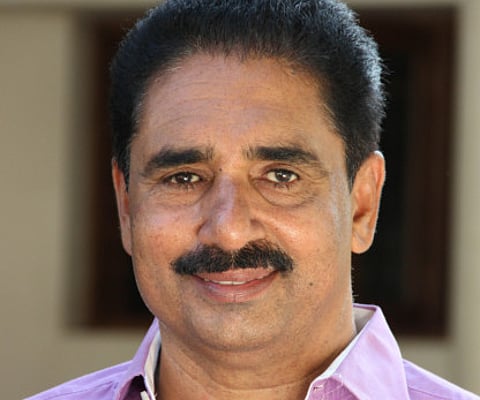Indian body repatriation rules cause confusion again
Government takes different stands in letter to MP and during submission at Kerala High Court

Abu Dhabi: While the controversy on the repatriation procedures of mortal remains to India continues, two divergent positions have emerged on the issue from two different quarters of the Indian government.
As Gulf News reported on July 10, a circular issued by the airport health officer at Calicut Airport in Kerala recently tightened the repatriation procedures by asking for submission of all documents such as death certificates 48 hours before the arrival of the body.
This led to an uproar from Indian expatriates, mostly from the South Indian state of Kerala.
Social workers had said such conditions would cause at least two more days of delay in repatriation of the body and that had prompted the airport health officer later to reassure that the status quo would prevail.
Meanwhile, a senior parliamentarian told Gulf News on Thursday that the central government had assured him that the documents related to the repatriation could be submitted to the destination airport even 30 minutes prior to the departure of the aircraft carrying the body.
In a letter dated July 21, a copy of which is with Gulf News, issued by the Indian Ministry of External Affairs in New Delhi to N.K. Premachandran, Member of Parliament (MP) of Kollam constituency in Kerala, it was stated that the matter was taken up with the airport director at Calicut International Airport.
The letter continued: “During a meeting held by him with various airlines, it has been informed that his office would require embalming certificate and death certificate to be submitted by airlines.
"These could be submitted by even 30 minutes prior to departure of the aircraft [from the foreign country]. However, it is necessary that in the death certificate, there should be a mention of the cause of death to prevent the entry of human remains infected with contagious/communicable disease. The Calicut airport has also clarified that the procedure is same as for other airports and the public need not panic,” the letter concluded.
In a telephone conversation with Gulf News from New Delhi on Thursday, the MP said that he received this letter in response to a request submitted to the Indian Prime Minister on July 10 to alleviate the concerns of expatriates.
However, just four days after issuing the letter to the MP, the Indian government took a different stand on the issue at Kerala High Court on July 24.
The assistant solicitor-general representing the Indian Government told the court that new rules are being framed, which would stipulate getting approval of the airport health officer 12 hours before bringing the body to India.
Approval 12 hours prior
The court allowed the authorities to insist on getting approval 12 hours prior to bringing the body in accordance with the draft rules proposed by the Indian Government until the case was disposed of by the court, as Gulf News reported on July 26.
Premachandran said if the government changed the 30-minute notice requirement to 12 hours, it would be a violation of the assurance given to him. “I got this assurance from the government with the privilege as an MP. A change in that assurance violates that privilege as well,” Premachandran explained.
He said the official issued the letter to him as directed by the prime minister in response to his request. “If it is violated, I will take it up with the prime minister again. I will also raise it in parliament,” he said.
A request for comment from the Indian Ministry of External Affairs, the Indian Ministry of Law and Justice and airport director of the Calicut airport did not get a reply until press time.
However, an official at the Calicut airport said the repatriation of bodies was being carried out regularly without any problems, despite the ongoing controversy.
Social workers in the UAE said the 12-hour prior-notice requirement would be impractical. After the embalming, the authorities release the body and embalming certificate together.
If the documents, including the embalming certificate, have to be submitted to the destination airport 12 hours before departure, the issue of where to keep the body during that period would arise, they said.
Sign up for the Daily Briefing
Get the latest news and updates straight to your inbox



